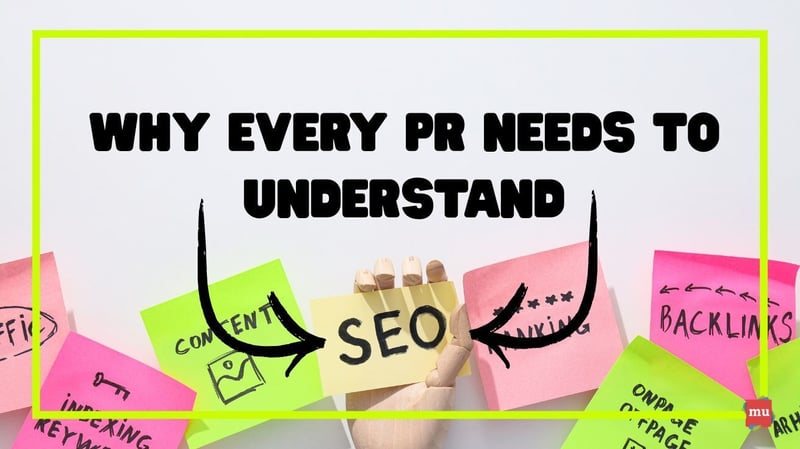Why Every PR Needs TO Understand SEO
Submitted by: Media Update Editor Save to Instapaper
In the current media environment, where Google serves as the initial destination for journalists, consumers and clients, PR experts must prioritise SEO (Search Engine Optimisation).
To ensure that your press releases, thought leadership articles and earned media are effectively reaching your target audience, incorporating SEO into your PR strategy is essential.
PR and SEO — What's the Connection?
PR and SEO are complementary strategies. This is because both have a similar goal — visibility.
They both aim to increase brand awareness but just achieve this differently. PR is focused on targeting human audiences, i.e journalists and the public. Whereas SEO ensures that all digital content is structured in a way that search engines can understand and rank it.
Think about it: having a brilliant thought leadership article is useless if it's on the fifth page of Google.
PR meets SEO when:
- press releases are optimised for search
- media placements generate high-quality backlinks, and
- brand mentions are keyword-rich and link to authoritative pages.
Why SEO Should Matter to PR Pros
So why should PRs care about SEO? Well, think of it like this: PR without SEO is like pitching a story that no one reads.
SEO assists PRs with:
-
Wider Visibility: SEO helps your coverage show up when users perform searches.
-
Extended Longevity: An optimised press release can keep attracting visitors for months.
-
Enhanced Measurability: SEO tools allow you to monitor impressions, clicks and rankings.
-
Increased Brand Credibility: Pages with high rankings build trust with both Google and your audience.
How PRs Can Start Using SEO
So, how do you get started with using SEO?
Use Keywords Strategically
Identify and incorporate relevant keywords into press releases, bios and media kits. Make use of tools like Google Keyword Planner or AnswerThePublic.
Build Backlinks Through Media Coverage
Encourage journalists to include links to your brand's site; these backlinks will improve domain authority.
Optimise Press Releases for Search
Make sure you include keywords in the headline, meta description and the first 100 words. Additionally, make sure your press releases are easy to scan for both users and search engines.
Collaborate with the SEO Team
If possible, work closely with digital marketers or SEO specialists to assist you in aligning brand messaging with broader search strategies.
Latest Press Articles
- Astron Energy Partners With 2025 Comrades Marathon
- Meet The People Acquires Yeoman Technology Group
- Effie Awards South Africa Announces 2025 Jury Panel
- Broadsign Unveils Automated In-advance Dooh Transactions
- Honouring The Youth- A Celebration OF Courage, Commitment, And Change
- Who Owns Digital? New Model Emerges As Marketing, Finance And Operations Must Share Stewardship
- Sportsbet.IO Appoints Five New Ambassadors
- Get Ready TO ACE Your Marketing Game!
- Caster Semenya, Gerda Steyn Partner With OMO TO Champion Resilience At Comrades Marathon
- SA Safari Lodges Lead Solar Shift TO Future-proof Tourism
- Transform Your Business Culture Through Customer Experience
- Why A Sick Note Won'T Get You Out OF A Disciplinary Hearing
- SA Rolls Out First Mass Poultry Vaccination TO Curb Avian FLU
- African Energy Week (AEW) 2025 African Energy General Counsel Forum TO Spotlight Strategic Legal Leadership, Dealmaking And Doing Business In African Oil & GAS
- Natural GAS And Africa’s Energy Future- Balancing Growth And Sustainability (by Adrian Strydom)
The Pulse Updates
- Xlink Crowned Technology Company Of The Year At The Africa Tech Week Awards 2025 (June 5, 2025)
- Celebrate International Day Of Play With The Weirdest (and Most Wonderful) Toys Of 2025 (June 4, 2025)
- Switching On The Future - Landmark Electricity Expo Comes To Joburg (June 3, 2025)
- Timeless, Bold, And Distilled With Care - Just Like Dad (June 2, 2025)
- New Report Reveals Msme Funding Realities In South Africa – And What Must Change (May 30, 2025)
